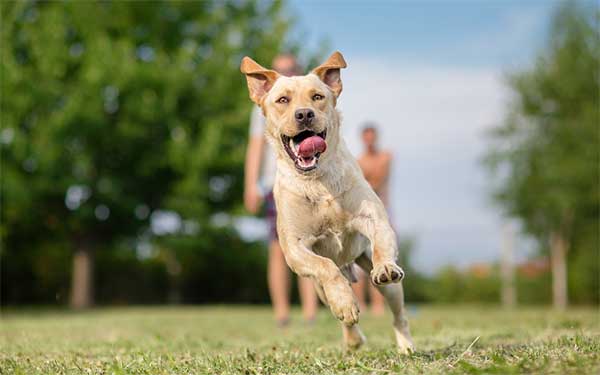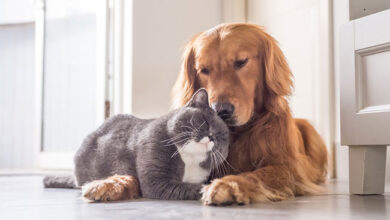
Devoted dog lovers are usually the kindest type of people. They share their hearts, homes, and sometimes beds with their canine pals. You may think that it is okay to share your favorite foods with your dog. Unfortunately, many of the foods we consume can wreak havoc on your pet’s body, affecting their health miserably. However, not only can some of our food be included in a dog’s diet all right, but it can also provide great health benefits like allergy immunity, better breath, and joint strength. On that note, read on to find out what your dog should and shouldn’t eat to stay healthy.

Read More:
- Human Food Dog Snacks: 7 Common Cooking Ingredients That Dogs Can Snack On
- The 5 Foods You Must Keep Away From Your Dog
- Human Foods not to Feed Your Dog
- Bitten by a dog? Here’s What You Should Do Now
- 10 ways to help treat kennel cough
what can you feed your dog
Bread
Modest quantities of plain bread, with no flavors and most certainly no raisins, will not hurt your canine, however, it doesn’t contain any health benefits. Bread has no health benefits and can truly pack on calories just like in our bodies. Homemade loaves of bread are a preferred choice over locally bought, as bread from the supermarket contains superfluous additives. However, it’s ideal to keep bread away from dogs anyway.
Cheese
Your canine pet can eat cheese in moderate amounts. Cheese is an awesome treat for your dog. As long as they’re not lactose intolerant, you can give this to them as their treat or snack.
Note that numerous sorts of cheese can be high in fat, so try to go for lower-fat assortments like mozzarella or cottage cheese. If you can’t get a hold of cheese in your home, a lot of people have recommended dog food delivery to save your time as well as secure some delectable snacks for your furry friends. Many canines partake in their own Himalayan dog bite made of dried cheese. However, it is not suggested to be consumed.
Fish
Fish contains great fats and amino acids, giving your canine amazing wellbeing support. Salmon and sardines are particularly good. Salmon is stacked with nutrients and protein and sardines have delicate, edible bones for additional calcium. Except for sardines, be certain to remove every little bone, which can be exhausting, yet is certainly important. Never feed your puppy uncooked or half-cooked fish; feed them only completely cooked and cooled fish and limit their intake to twice a week.
Eggs
Your pup can eat eggs as long as they are completely cooked. Fully-cooked eggs are an awesome protein source and can help an irritated stomach. Nonetheless, eating raw egg whites can increase biotin deficiency, so ensure cooking the eggs completely prior to offering them to your pet.
Honey
Honey is stacked with numerous nutrients such as vitamins A, B, C, D, E, and K, calcium, potassium, copper, antioxidants, and magnesium. Small amounts of honey can help your canine pals with allergies since it introduces small portions of pollen to their immune system, which helps to build up immunity to allergens. In addition to the benefits of consuming honey, it can be used as a treatment for superficial cuts and burns.
Peanut Butter
Peanut butter is a great source of protein for your pooch. It contains niacin, vitamins B and E, and fats that are good for heart health. Unsalted peanut butter is the healthiest choice. Carefully read the label to ensure that it doesn’t contain xylitol or any sugar substitute that can be poisonous for dogs.
What They Shouldn’t Eat
Chocolate
You should never feed your dog chocolate. You may think that you will enjoy this treat as much as you do, but you’re wrong. The toxic substances in chocolate, called methylxanthines, are stimulants that put an end to your pet’s metabolic system.
The smallest amount of chocolate, particularly dark chocolate, causes vomiting and diarrhea. Larger amounts can result in seizures, irregular heartbeats, and sometimes death. Moreover, place your chocolate nowhere near your pup. If your dog accidentally eats chocolate, call the veterinarian or Pet Poison Helpline immediately.
Cinnamon
Although cinnamon is not poisonous to dogs, it’s best to stay away from it. The oils that cinnamon contains may irritate your puppy’s mouth, making them sick and uncomfortable. It can decrease their blood sugar and can lead to vomiting, increased heart rate, and liver disease. If your pet inhales cinnamon powder, it can cause breathing difficulty, coughing, and choking.
Garlic
Similar to onions, chives, and leeks, garlic is from the Allium family, and it is five times more poisonous to dogs than the other Allium plants. Garlic can result in anemia that causes pale gums, increased heart rate, fragility, and breakdown. The toxics from garlic and onions usually have delayed symptoms. So, if your dog eats any, keep monitoring them for a few days to ensure their safety.
Ice Cream
Even though ice cream is a refreshing treat for us, it contains a large amount of sugar so it is preferred to not share it with your pet. Additionally, ice cream is bad for dogs that suffer from lactose intolerance. To be on the safe side, avoid milk and instead offer frozen chunks of various fruits to your dog as a delicious, chilly treat. These can include pineapples, strawberries, apples, and raspberries.
Almonds and Macadamia Nuts
Almonds are not toxic to dogs like macadamia nuts are. However, if not chewed completely, almonds can block their gullet and tear the windpipe. Salted almonds are more dangerous as they can increase water retention, which is deadly to pups that are liable to have heart disease.
Macadamia nuts are some of the most toxic foods to dogs. They can cause vomiting,
elevated body temperature, inability to walk, and fatigue. These nuts can even affect your pup’s nervous system so it’s better not to give them to your dog.
Unlike cats, dogs aren’t picky eaters at all. However, this does not mean that whatever they eat is good for them. As a dedicated dog lover, you must know how specific foods affect your pup. You need to know which foods are toxic to them to keep them safe and sound. Furthermore, don’t make experiments to know whether or not a certain type of food is dangerous. You have to be well-informed before giving any food to your pet. Keep the listed foods in mind to help you understand the effect some foods may have on your fluffy friend.



